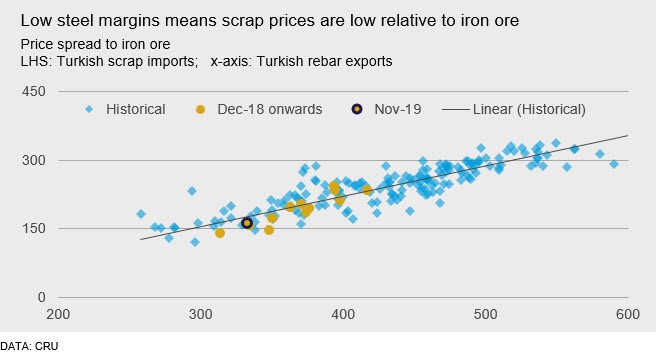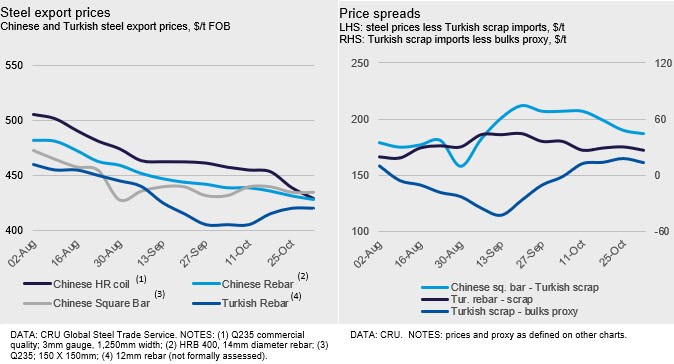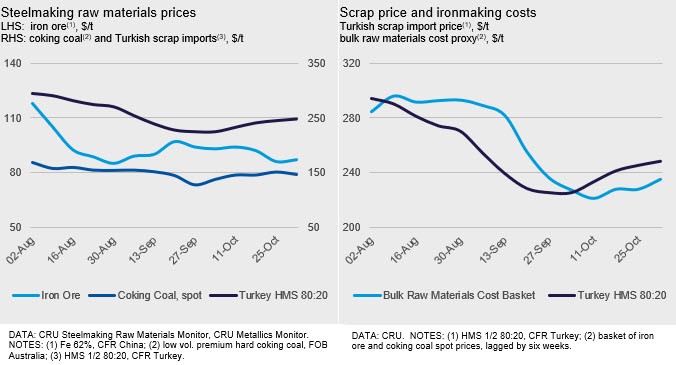Prices

November 2, 2019
CRU: Turkish Scrap Import Price Edges Closer to $250/t
Written by Ryan McKinley
By CRU Analyst Alexander Ordosch
Last week, Turkish scrap import prices were assessed at $248 /t CFR for HMS 80:20. Only one deal was assessed from Europe, after strong restocking activity over recent weeks. Prices have been rising in recent weeks as sellers have pushed for gains as it had become uneconomic to supply at the lower prices of early October. Turkish mills have been able to accept this as they have been able to lift steel export prices to almost the same degree.

While scrap prices edged higher, Turkish steel export prices remained stable w/w: rebar was assessed at $420 /t FOB Turkey and wire rod at $455 /t. Turkish longs export prices held ground despite a fall in Chinese longs export prices, which dropped slightly: rebar was down by $4 /t w/w to $428 /t FOB Tianjin. Meanwhile, Turkish hot-rolled coil prices fell $10 /t w/w to $415 /t FOB Turkey, alongside a similar fall in Chinese hot-rolled coil export prices to $429 /t FOB Tianjin.
Given weak fundamentals in the steel market, it might be surprising at the first sight that Turkish scrap prices could increase strongly over the past four weeks. Overall, Turkish scrap import prices have risen by $23 /t m/m and steel export prices rose $15 /t m/m. However, as the chart below shows, the current Turkish scrap import price is where we expect to find it relative to steel and iron ore prices. When steel margins are low (e.g. the spread between rebar prices to iron ore is low), scrap prices are historically also low. While Chinese steel export prices have fallen compared to stable Turkish steel export prices, the former remains at a premium to the latter, albeit a smaller one. Despite weaker domestic conditions, Chinese mills have not increased exports significantly due to cost competitiveness.

Have U.S. Scrap Exporters Overdone It?
Turkish scrap import prices have increased over recent weeks considerably, despite scrap and steel markets in both the U.S. and Europe being weak in October. U.S. scrap exporters pushed prices higher as they have become uneconomic to supply as inflows dried up amid domestic U.S. mills restarting operations after maintenance outages. That said, we expect there is little room for further increases in Turkish scrap import prices in the next weeks. Weakness in the European steel market means there is ample cheaper supply from there and recent deals have been priced lower than from the U.S. Furthermore, despite mills’ attempts to lift steel prices in the U.S., sentiment has soured, and the market no longer expects scrap prices to recover with the November buy programs.









